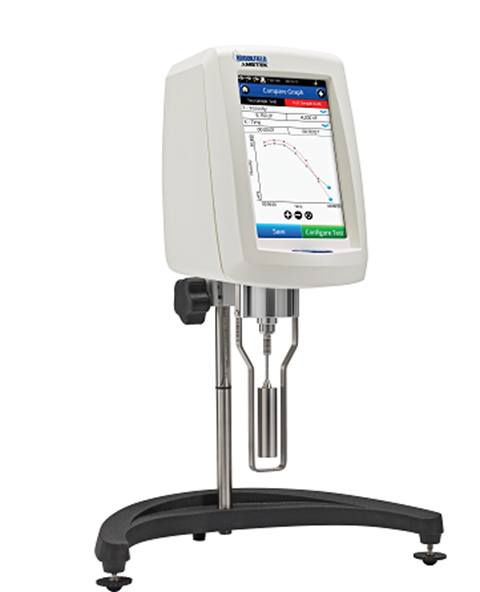 Understanding and controlling the viscosity of your material can be a critical step in its formulation-design space, manufacture, storage, and transportation. The viscosity of various pharmaceutical products including creams, ointments, syrups, suspensions, emulsions, coatings, gels, semi-solids, and biologics must be evaluated, monitored, and maintained between batches to ensure consistency with respect to both product production and performance. Viscosity is the measure of a material’s resistance to flow and can be better understood as the friction between different molecules of the material. In order to accurately measure the viscosity of a material or product, a viscometer or a rheometer is typically used. These instruments exert a shear force on the material being tested.
Understanding and controlling the viscosity of your material can be a critical step in its formulation-design space, manufacture, storage, and transportation. The viscosity of various pharmaceutical products including creams, ointments, syrups, suspensions, emulsions, coatings, gels, semi-solids, and biologics must be evaluated, monitored, and maintained between batches to ensure consistency with respect to both product production and performance. Viscosity is the measure of a material’s resistance to flow and can be better understood as the friction between different molecules of the material. In order to accurately measure the viscosity of a material or product, a viscometer or a rheometer is typically used. These instruments exert a shear force on the material being tested.
While viscometers only measure viscosity, rheometers play a much more versatile role by characterizing flow, deformation, and tackiness of a material, inclusive of both Newtonian and non-Newtonian materials. In addition, rheometers have a far broader shear measurement range, from 10-6 to 105 s-1 which can be critical when mimicking production processes. There are two main types of rheometers: those that control applied shear stress and are known as rotational rheometers or those that apply extensional stress and are known as extensional rheometers. When considering pharmaceuticals, a rotational rheometer is typically utilized as it can provide information on the effect of molecular structure on processing characteristics.
Rotational viscometers have two main parts: one that rotates and the other that remains still. The two parts can be either parallel plates, a cone and plate, a cup and a bob, or rotating rods in a cup. The rheometer operates by rotation of one of these specific parts that relate a well-defined, applied shear stress to the resulting shear rate, which can be measured and easily converted into meaningful viscosity values.
Improved Pharma has a Brookfield DVNext rotational cone and plate rheometer for measuring viscosity of various pharmaceutical materials or products. This rheometer has the ability to measure viscosity in the range of 10.5 -7.8 million cP. In addition, it uses 0.5 to 2.0 ml of sample, which is ideal as either a research tool for various materials or for products in the early stages of development where quantities are limited for characterization.
